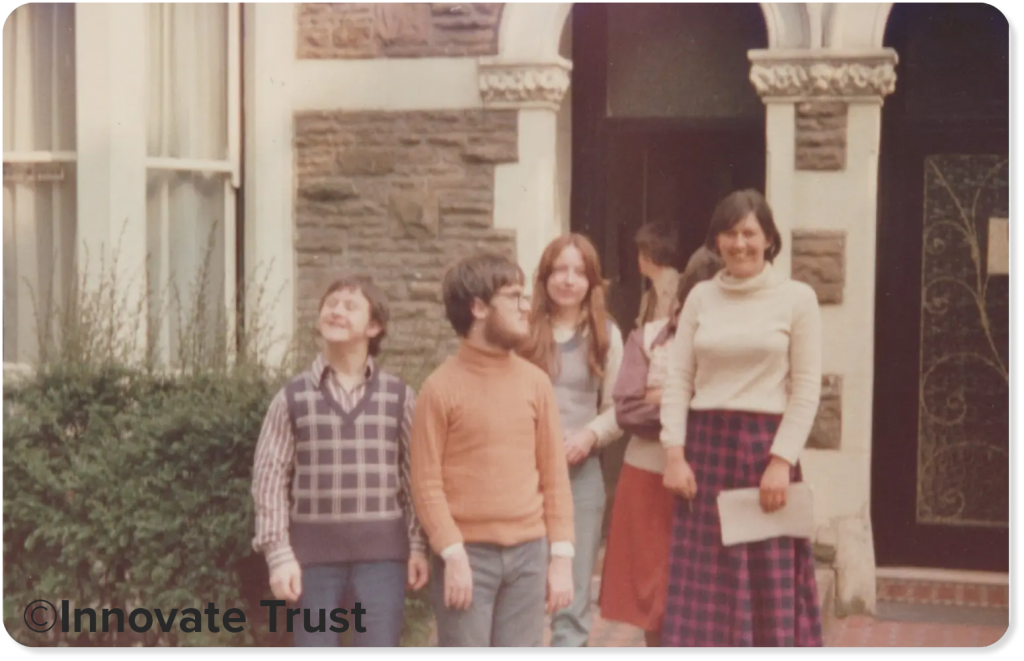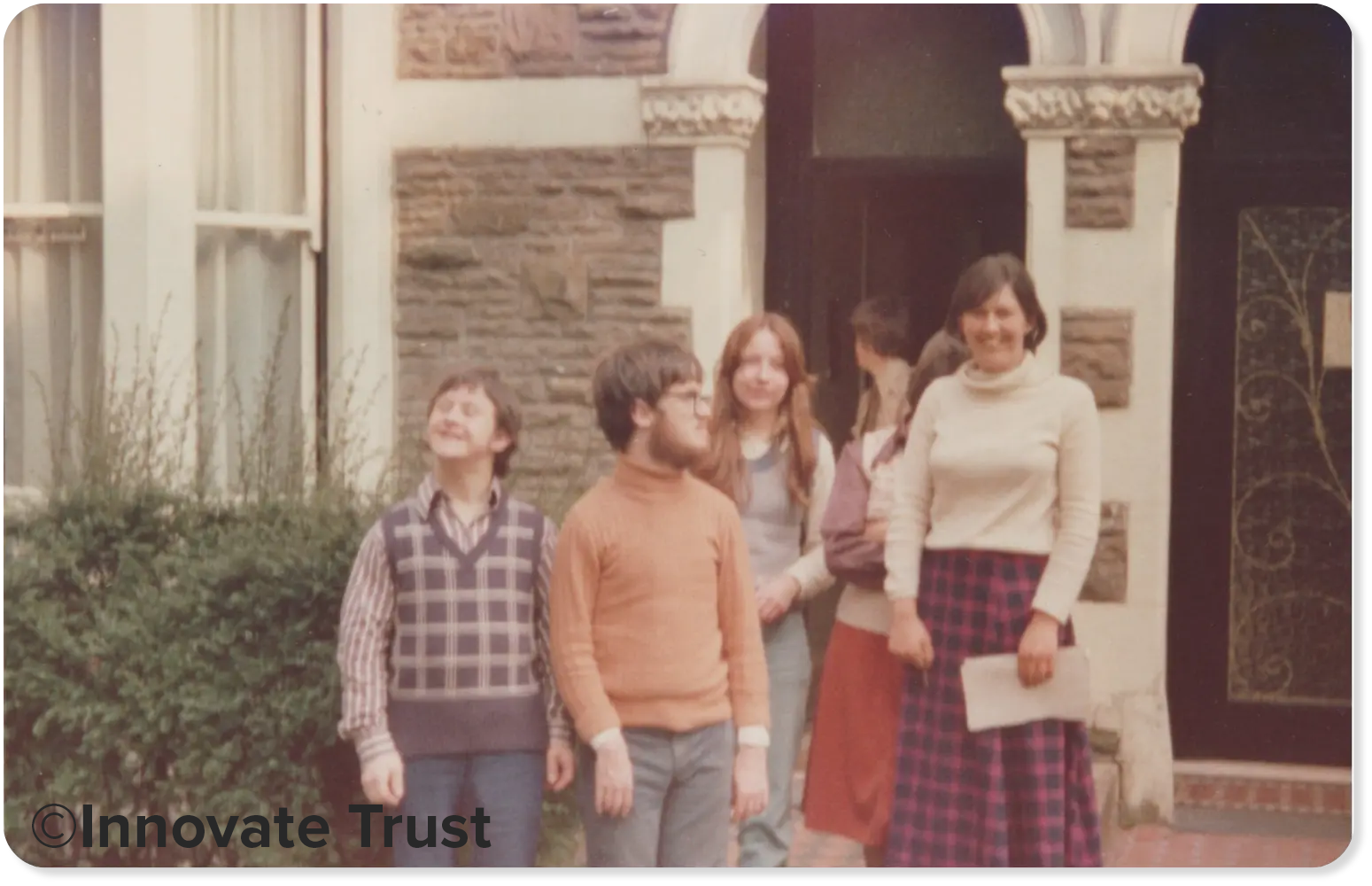By Erina Butler
This summer, I have embarked on an exciting internship project with the Centre for Adult Social Care Research and the Children’s Social Care Research and Development Centre, exploring the legacy of the Cardiff University Social Services group (CUSS), now known as Innovate Trust, an organisation that played a vital role in shaping social work education and community engagement in Cardiff. Through this project, I aim to shed light on CUSS’s contributions, trace its historical impact, and celebrate the individuals who helped shape its important chapter in the university’s history.
Founded in 1967, CUSS was a pioneering training and research centre for social work and social administration. It led the way in developing innovative, community-based approaches to care and social support, many of which influenced national policy and practice. The organisation brought together students, academics, practitioners, and local communities in a shared mission to improve lives and challenge outdated systems of care.
As part of my internship, I’ve been reviewing archival materials including reports, training documents, photographs, and correspondence that provide insight into CUSS’s operations and priorities. I’m also beginning to connect with individuals linked to CUSS—now known as Innovate Trust—to gather personal reflections and oral histories that will help bring the story to life.
One particularly significant chapter in CUSS’s history is its involvement in the response to the 1969 Ely Hospital scandal. Ely Hospital, located in Cardiff, became the focus of a national inquiry following reports of serious abuse and neglect of patients with learning difficulties. CUSS played a key role in the aftermath: its staff and students actively advocated for improved care and helped individuals transition from institutional settings into more supportive, community-based living arrangements.

A central hub for this pioneering work was 12 Ruthin Gardens, the original headquarters of CUSS and the first supported living home in the UK for five former Ely Hospital residents. More than just an administrative base, 12 Ruthin Gardens was a space where activism, community partnership, and transformative ideas took place. With the dedicated work of the university’s students, the five residents learnt how to live independently and take control of their everyday lives, many for the first time. This marked a radical shift in how care was delivered, moving away from institutionalisation and towards empowerment, dignity, and autonomy for individuals with learning difficulties. The model developed at 12 Ruthin Gardens laid the foundation for supported living approaches that are widely adopted across the UK and beyond.
The main outcome of my internship will be a public exhibition in the Glamorgan Building this autumn. The display will highlight key milestones in CUSS’s history, showcase its achievements, and reflect on its continuing relevance to social work and disability advocacy. It will also serve as a tribute to the staff, students, and service users who helped shape its remarkable legacy. This project has already been incredibly rewarding. It has allowed me to develop new research skills while deepening my understanding of how community-based initiatives can bring about real and lasting change. I look forward to sharing this story with others and welcoming visitors to the exhibition later this year.

